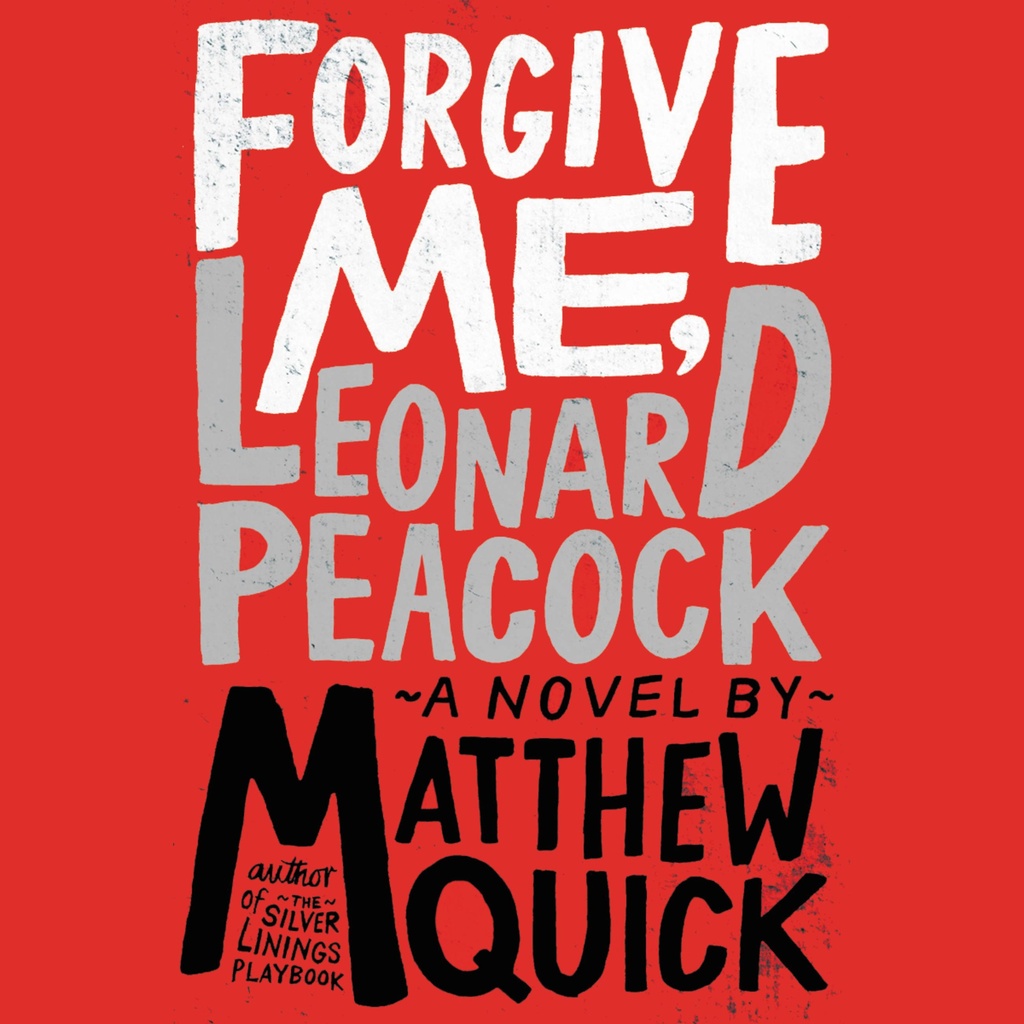Review: “Forgive Me, Leonard Peacock” is YA for This Generation

Janii Yazon ‘19 / Emertainment Monthly Staff Writer
Forgive Me, Leonard Peacock is the eclectic result of a very specific collection of conditions that define teens of the 21st century. Matthew Quick’s YA triumph, which was re-published in 2014 by Little, Brown Books for Young Readers, recognizes, describes, and expands on the melancholic alienation characteristic of Millennials. It is, in simple terms, the identity book of a generation.

The premise of the story is simple: on his 18th birthday, the disenchanted Leonard Peacock plans to kill his ex-best friend and then himself. That premise alone threatens to raise simplified synopses such as “Sixteen Candles meets Heathers — but in the center of it all is Holden Caulfield reincarnated.” But Leonard’s distinct narration style, loading the page with sad honesty and unexpected humor, and overloading the page with generous amounts of footnotes, quickly dismisses any comparisons. What particularly stands out from the novel are epistolary chapters, letters written by a Leonard twenty years in the future. In taking the risk of pursuing a rather cliche style, Quick is able to draw hauntingly beautiful metaphors between Leonard’s life and the shining of a lighthouse when no one will ever see it, while also displaying Leonard’s true desire to live a fulfilling life.
Matthew Quick undoubtedly succeeds in giving life to a character that reads like a real person, a person with all his flaws and misunderstandings and angst, a person who makes no sense yet seems to create his own impeccable logic. And teenagers need to read real people, because that may be the only time they can ever unflinchingly examine one.
The book both depends on and thrives from the real people Quick has created; Walt, Leonard’s elderly neighbor with whom he finds cigarettes sales online and watches Bogart films, and Herr Silverman, Leonard’s teacher onto whom Leonard projects his desires to live happily, play important roles in both characterizing Leonard as someone so detached from his own generation and adding conflict to a story that could have easily ended as soon as it began. Quick takes a huge risk in creating these almost tangible characters because that leaves no room for anyone to be manipulated, meaning everything must feel organic — and it completely pays off.
Matthew Quick shows no fear in tackling a rather unspoken issue: sexual abuse between and towards men. He treats the issue with respect while still keeping Leonard’s description — or rather, hesitance to describe it — hauntingly honest. Throughout all of Leonard’s poetic candour, Quick manages to keep the audience wondering what happened between Leonard and Asher Beal, the aforementioned ex-best friend. When the big reveal comes, it is perhaps the biggest shock of the entire novel. It’s here that Leonard’s long-running questioning of human compassion, of judgment, of hatred, of betrayal, of love comes to a head, and the audience’s questioning really begins. It’s here that Leonard Peacock transforms, with just a few pages of recollection, from a quirky sociopath written down for examination to an irrationally apologetic victim. Matthew Quick could easily have used this tragedy as the enigmatic catalyst to a story the audience will probably never really experience, reduced Leonard’s plan to the result of an abuse victim’s chaotic mind, but instead Quick heightens it to the almost pitifully simple last resort of a kid who has been betrayed, who is alone, and who has no reason to believe things can ever change.
It is here, perched atop inexplicably sentimental conversations with an elderly chainsmoker and integral interactions with Leonard’s favorite teacher, that Forgive Me, Leonard Peacock defines itself as the book of a generation. Heavily dependent on the open-minded and introspective nature of its audience, this novel could not exist in any other time. This two-way street marks Leonard Peacock as nothing short of incredible — an essential and welcome divergence from the recent influx of YA novels which, in comparison, seem so dull and lifeless against Leonard Peacock’s vitality.